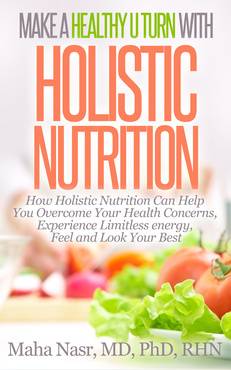It is estimated that one in three people has an allergy. Some of these are to air borne substances such as pollen, dust mites or cat fur, or the environment. But the most common category of allergy provoking substances is the food we eat.
Food allergies are not rare, nor are their effects limited to the air passages, the skin and digestive tract. It is estimated that 60% of the population has unknown food allergies or intolerances. Hence, it is important that we increase our awareness of the scope of allergy as a possible cause of our symptoms.
What is a food allergy?
A food allergy is an immune system response to a particular food that the body perceives as harmful. Reactive antibodies are produced against the allergenic food and produce an immune response each time this food is consumed.
Food intolerance is another condition which can produce symptoms clinically indistinguishable from food allergy. While allergies are caused by an immune system response, food intolerances occur when the digestive tract lacks enzymes for proper digestion, as in lactose intolerance when the body lacks the enzyme lactase.
What are symptoms of allergies?
Food allergies and sensitivities are difficult to diagnose because symptoms vary from one person to another. Most food allergies are delayed reactions, taking anywhere from an hour to three days to show themselves, and are therefore much harder to detect.
Doctors who have worked extensively with food allergy are astounded at the wide range of symptoms that can be observed in patients. Allergy can produce symptoms as mild as runny nose or as life threatening as anaphylactic shock. Not every symptom is allergy but any symptom can be allergy.
The most common symptoms of allergies include:
- Dark circles and puffiness under the eyes
- Brain fog and headaches
- Stuffy or runny nose
- Gas and bloating
- Itchy skin
- Eczema
- Hyperactivity in children
Other symptoms include aching muscles, asthma, chronic diarrhea and malabsorption, constipation, stomach cramps and indigestion, irritable bowel syndrome, abdominal discomfort, water retention, joint pain, PMS, hives and deadly reaction known as anaphylactic shock.
Allergies can also produce vague symptoms like emotional irritability, fatigue and anxiety. Studies have shown that hyperactive children have, at least, one food sensitivity.
What are common allergenic foods?
Any food or substance a person puts in his or her mouth can be an allergen, but there are five foods that account for 75% of allergenic food reactions.
Wheat (and gluten)
Corn
Soy
Dairy/Cow’s milk
Eggs
Other possibly allergenic foods include yeast, tree nuts, peanuts, berries, citrus fruits, coffee, chocolate, tomatoes, fish and shellfish.
A relationship also exists between the foods repeatedly eaten and those that cause allergic responses. In Japan, for instance, fish allergies are more common, in North America wheat is more of a problem.
What are the underlying causes of food allergies?
- Hereditary-Children who have one family member with allergic diseases (including asthma or eczema) have a 20 to 40 per cent higher risk of developing allergy. If there are two or more family members with allergic diseases, the risk increases to 50 to 80 per cent.
- Chemicals added to food to preserve or change the color or taste, or used as pesticides-contribute to a build-up of toxins in the body and weaken our immune systems.
- Nutrient deficiency caused by the refining of food and fast food which provides empty calories with little nutrition.
- Improper digestion-often related to improper chewing, bad food choices, stress and lack of digestive enzymes and stomach acid.
- Leaky gut syndrome-overuse of antibiotics (destroy normal gut flora), frequent use of aspirin, consumption of alcohol, deficiency in essential fatty acids or a gastrointestinal infection (such as candidiases) are all possible contributors to leaky gut syndrome. It is thought that the intestines allow incompletely digested particles to enter the bloodstream. These are often recognized as foreign substances and attacked by the immune system.
- Introducing solid foods too early to babies has been linked to allergies, as the enzymes are not yet available for proper digestion. Homogenized and pasteurized cow’s milk fed to babies often has a similar effect, as the proteins are foreign and difficult to digest.
- Stress -a major factor in undermining our health. It depletes the body of essential nutrients and increases demands as well as impair the immune system from functioning optimally, allowing allergies to appear.
It is important to deal with allergies because they represent an ongoing inflammatory reaction in the body which produces harmful chemicals as well as consumes the immune system in fighting a falsely perceived harmful substance. This weakens our resistance to infections as well as predisposes to a host of other diseases as high cholesterol, heart disease and arthritis.
Are allergies curable?
Using drugs to manage and control allergy provides only temporary relief or control of symptoms but does not get you well. Alternatively, natural methods promote the body’s natural healing response and help to remove the underlying causes which are stressing the body’s immune system.
From personal experience as well as experience as an Oakville-based holistic nutritionist, I can assure you that contrary to common beliefs, allergies are not a permanent condition you must learn to live with. Not only can you heal your allergies; it is not as difficult as you might think.
Through a holistic nutrition approach and with help of a registered holistic nutritionist changing your diet, lifestyle or beliefs can be the solution. Diseases including allergy are the result of a lifetime of destructive habits. Anyone desiring to be healthy can decide to make the changes necessary to accomplish that goal.
We offer tele-health coaching via Zoom, so we can help you if you are out of area. If you need help with your health and nutrition, sign up for a 15 Min Discovery Call with Registered Holistic Nutritionist and Life Coach, Maha Nasr to discuss your current goals and concerns and ask how we she can help you.
If you find this information useful, please feel free to share with your family or friends.
References
Encyclopedia of natural healing, Siegfried Gurrsche, MH and Zoltan Rona, MD, MS
The new optimum nutrition bible, Patrick Holford, MD
Allergies-Disease in disguise, Carolee Bateson-Koch, DC, ND



